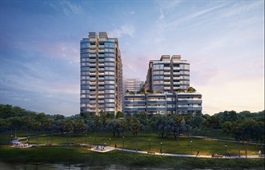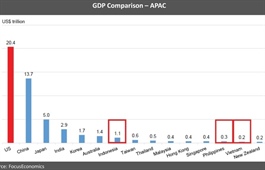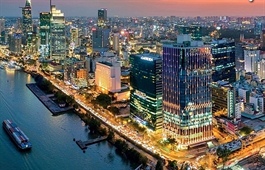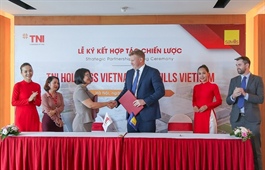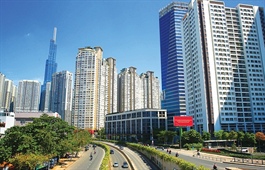High potential for resort property in economic zones after the pandemic
High potential for resort property in economic zones after the pandemic
As the pandemic is gradually brought under control in Vietnam, the country is emerging again as a safe destination for tourists and investors, especially in emerging economic zones like Van Don and Phu Quoc, which both offer many advantages, such as stunning nature and beautiful scenery, over traditional property markets.
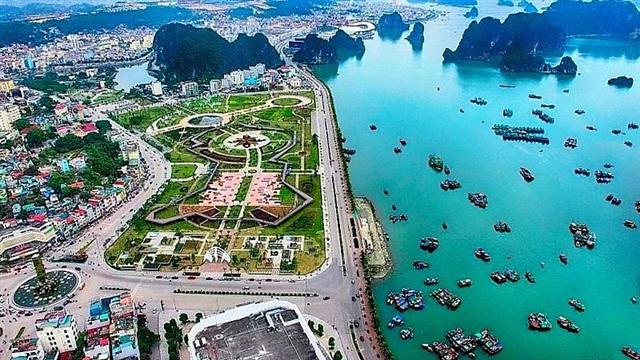
Van Don is said to be favoured by resort property investors
|
After controlling the pandemic, resort property is said to be re-ordered in the time coming. Anticipating the future of resort property, economists said that emerging markets will be the destination of investors thanks to the fresh and countless opportunities that these locations offer over traditional ones.
Thus, most domestic and foreign investors pay special attention to Van Don and Phu Quoc as both of these locations come with high potential in tourism development thanks to their infrastructure and tax incentives.
Most of the larger real estate developers like Vingroup, CEO Group, Sun Group, and FLC Group have already set foot there along with some billion-dollar projects, which are expected to change the face of these areas in the near future.
In addition to already existing projects, numerous other ones have been put in the pipeline such as Sonasea Van Don Harbor City (Halong ward) of CEO Group with an investment of VND2 trillion ($87 million), which will include many shops and hotels.
Le Xuan Nghia, former vice chairman of the National Financial Supervisory Commission, believes that “the evolution of Van Don and Phu Quoc can be compared to Singapore, which was also a fishing village up to the 19th century and has developed well thanks to proper policies and investment.”
Nghia added that “Tourism property, particularly in these two special economic zones will certainly evolve and their prices will sharply increase.”
Furthermore, Nghia pointed out that Van Don's real estate market already develops significantly. As such, fast and sustainable development over the last years has enabled Quang Ninh to become the promised land for many investors. Additionally, Van Don is set up to become a multi-sector marine economic area, including an entertainment centre with a casino and the development of several resort properties.
According to Tran Kim Chung, deputy director general of the Central Institute for Economic Management (CIEM), Van Don has six particular advantages to develop resort property, including the establishment of the Van Don Economic Zone Management Board, its infrastructural development, and the connection to Quang Ninh province and others. Moreover, Van Don is not only a new natural destination but can also utilise the experience of other localities in addition to incentives in policies.
Meanwhile, the Chung also highlighted numerous advantages of Phu Quoc, such as some of the world’s best beaches, favourable transport, and pre-existing economic relationships with real estate giants like Sun Group, Vingroup, and CEO group.
Thus, investing in resort property is a considerable choice, especially in such economic zones as Phu Quoc and Van Don, both coming with a lot of natural advantages like sightseeing, climate, long beaches, and safety.
Nguyen Manh Ha, vice chairman of the Vietnam Real Estate Association, said that tourism is to become one of the key economic sectors of the country. By 2025, Vietnam estimates to receive 35 million international arrivals and 120 million domestic arrivals at least. The total revenue from tourism is projected to reach $80 billion with a growth rate of 13-14 per cent.
"In the near future, the tourism-related property market has an abundant room left for development," said Ha.
According to the Vietnam Association of Real Estate Brokers, in 2019, some local markets were already saturated while others were just emerging like Phu Quoc, Quy Nhon, Quang Binh, Hue, Van Don, North Van Phong, and Ba Ria-Vung Tau. The total supply of tourism property last year amounted to 18,425 units, including 6,700 traded ones.
Back in 2018, nearly 8,600 condotels were released to the market, and 7,500 of these were sold out. Meanwhile, in 2017, around 12,500 tourism property products like condotels and villas were transacted successfully.





